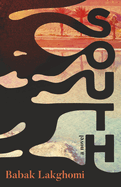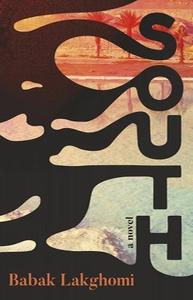
 South, the first full-length novel from Iranian Canadian writer Babak Lakghomi (Floating Notes), is an unsettling surrealist portrait of surveillance and paranoia. B, a journalist, doesn't know what to expect when he is assigned to cover a series of labor strikes on an oil rig in the middle of the South, a mysterious desert country. With his marriage faltering at home and his book about his father still being altered by his editor into something unrecognizable, his life already feels like an unfamiliar place. But the isolation, corruption, and manipulation he finds in the South is beyond what he expected. Worse still is the unknowability of forces that seem to be bent on his destruction: evil spirits that travel on the wind and shadowy government forces alike.
South, the first full-length novel from Iranian Canadian writer Babak Lakghomi (Floating Notes), is an unsettling surrealist portrait of surveillance and paranoia. B, a journalist, doesn't know what to expect when he is assigned to cover a series of labor strikes on an oil rig in the middle of the South, a mysterious desert country. With his marriage faltering at home and his book about his father still being altered by his editor into something unrecognizable, his life already feels like an unfamiliar place. But the isolation, corruption, and manipulation he finds in the South is beyond what he expected. Worse still is the unknowability of forces that seem to be bent on his destruction: evil spirits that travel on the wind and shadowy government forces alike.
Lakghomi's sparse, taut descriptions quickly conjure a world that exists uncannily alongside our own, one that reads like both a near-future dystopia and a recent-past industrial wasteland: "After the drought, men had moved in groups to work farther south. Oil rigs, refineries, steel. Lonely men away from their families, staring at screens. More steel factories and refineries were shutting down, letting people go. In the industrial towns, strikes every day. Tear gas and batons. Union leaders disappeared." The stories B hears from the haunted figures he encounters infuse this world with creeping superstitions and prophecies of doom that underline its precarious position, teetering on the brink of the past and the future. Together, these whispers and the phantom evidence of constant censorship and surveillance create an atmosphere of intangible but ever-present threat, one that effectively drives the narrative forward even as readers, like B, remain ever more in the dark.
B's hallucinatory nightmare--part fever dream and part psychoanalytic quest--fits into the contours of a noir: the personally troubled detective, a system of corruption that eludes discovery, a femme fatale flickering on the periphery. But the puzzle box nature of South refuses to fit neatly into one genre, instead recalling many and resisting easy categorization. The inability for the pieces of B's story and threads of his paranoia to ever tie completely together subverts readers' expectations of or desire for neat solutions. Ultimately, South achieves its effect primarily through its atmospheric tension, its disquieting setting, and its themes of guilt that leave both its protagonist and its readers seeking but never finding a true sense of agency or control. --Alice Martin, freelance writer and editor
Shelf Talker: A Lynchian descent into the paranoia and alienation of totalitarianism, South is a haunting and dreamlike novel from Babak Lakghomi.

